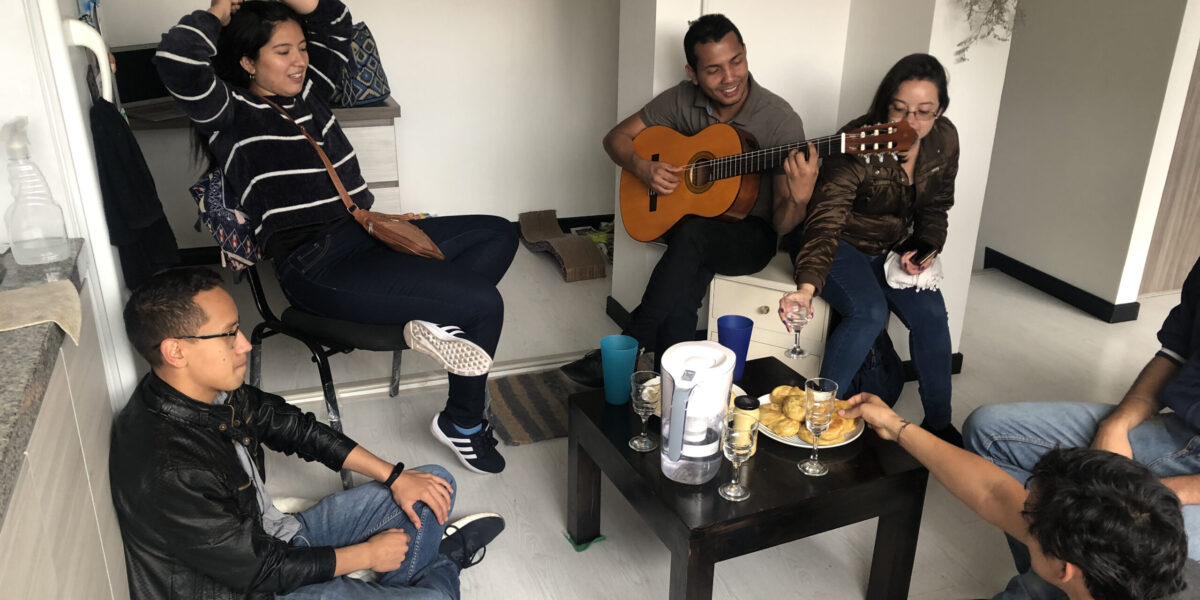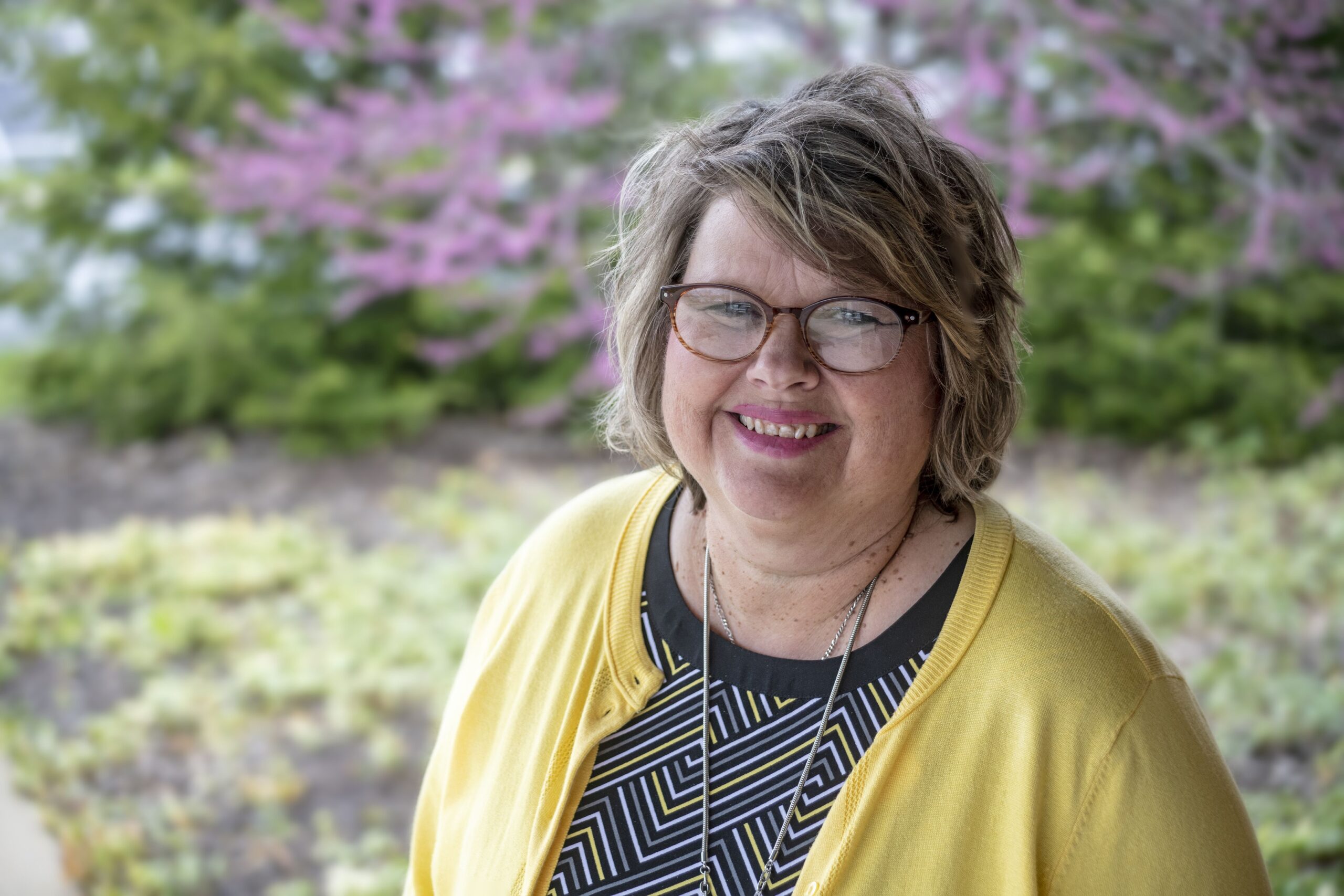NEWTON, Kansas (Mennonite Mission Network) ⸺ The former Mister Rogers’ Neighborhood television program for children seems remote from today’s coronavirus pandemic. Yet, his wisdom about "looking for the helpers" has evoked some hopeful storytelling from Mennonite Mission Network’s international service workers in Latin America.
Linda Shelly, Mission Network’s director for Latin America, gleaned the phrase from listening to National Public Radio (NPR), she said during her Hope Series presentation on Thursday, Apr. 30. After hearing the NPR segment, she invited Latin America workers to share stories about how helpers are bringing hope to their communities during the pandemic crisis.
"Mister Rogers would say that as a child he became extremely frightened by something on the news and wondered how he would ever be safe," Shelly said. "His mother gave him simple but profound advice: ‘Always look for the helpers,’ she told him, with the quiet certainty that they could always be found."
Below are excerpts from the many stories Shelly received:
From Carchá, Guatemala, Deb Byler wrote:
"The mayor of San Pedro Carchá — newly elected last summer — has been a blessing to Carchá and the surrounding area. He gave an encouraging speech this past weekend about how to manage during this difficult time. He grew up in the countryside, so he knows what it’s like to live there. He also sent water to people in the country. (It is hard to find water this time of year in many communities because there’s very little rain.) … One woman told me this has never happened before. It is a blessing when our elected officials care for the people they serve. It’s not something we should take for granted, because it doesn’t always happen …"
Bekah York, who arrived in Colombia in January, wrote:
"Here in Bogotá, I recently learned that there are two medical professionals who live in my apartment complex, working daily on the front lines. We exchanged numbers a month or so ago because one of them wanted to practice English with me (over Zoom). … They are working insane hours and are putting themselves in harm’s way on behalf of all of us, resulting in extreme exhaustion. However, every day they get up and go into the hospitals to continue doing what they can. They give me immense hope.
"Other helpers who instill hope in me are those who are not on the front lines, but are staying present and fully engaged with the pandemic’s cause-and-effect realities, including Mennonite churches and their leaders. For example, a Mennonite church has collected money and food for those who rely on informal street vending opportunities shut down by the pandemic. Also, the director of the seminary here is collecting monetary donations for food for residents in the Cordoba region. These residents, who pre-virus had little or no access to running water, are experiencing more intense shortages now.
"Remembering these helpers has kept me grounded during this crisis. They remind me that the Holy Spirit is at work in the world, transforming brokenness, injustice and violence into a glimpse of something beautiful in God’s kingdom. … Working for shalom (or God’s "justpeace") requires that we partner with God in constructing an alternative narrative to what we currently perceive. This partnership offers something new through the Spirit’s work …"
From Iquitos, Peru, Elena Buckwalter Satalaya wrote:
"Our helpers have been our church family here and in other parts of the world. In a fearful, anxious time, it is such a blessing to meet virtually for church. We’ve loved watching our local church’s Facebook live services every Saturday and Sunday. An added bonus is worshiping online with my home church in the States, as well as with a few other churches we know around the world.
"Many churches throughout Iquitos have invited donations from their congregants or from out-of-country sister churches to buy groceries for communities with the most need. Over the last few weeks, households void of food hang white flags outside their homes to indicate their need. Our church is buying, packing and distributing groceries to some of those homes from donations sent from churches around the world. In a city where so many people with no savings live day-to-day, the church is being the hands and feet of Jesus."
From Santa Cruz, Bolivia, Margrit Kipfer Barrón wrote:
"The strict quarantine and the militarization of the city is prohibiting us from visiting and helping families. So, we are connecting with the church’s families through WhatsApp and encouraging each family to worship at home."
Shelly noted that Kipfer Barrón also said that even though restrictions are prohibiting people from inviting their neighbors to join in their home worship, neighbors are still coming. One neighbor told them he came because he needs God at this time.
Kipfer Barrón concluded, "Once it opens up a bit, we want to go see how the people are and help where needed."
From Asunción, Paraguay, Hildi Amstutz wrote:
"A strong sense of solidarity is empowering neighbors to help other neighbors by providing food to those who can no longer earn their daily bread from selling items on the street. This assistance ranges from small food packages to trucks carrying larger food packages organized by the government, ranchers and churches. We all have so much common language now; this situation is bringing us closer together as a people, across cultural, age or societal barriers."








